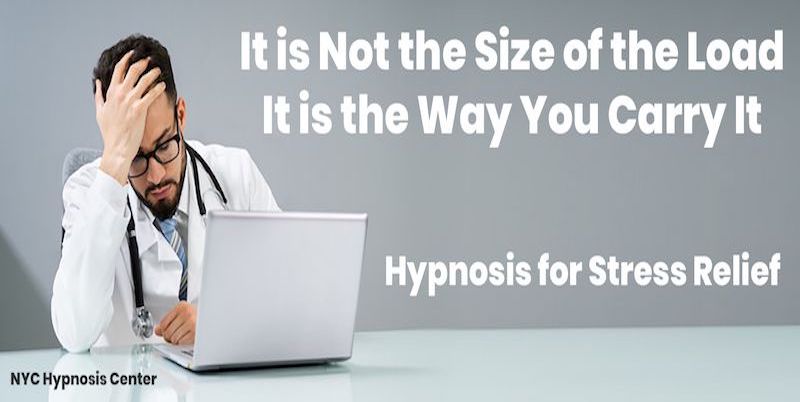
Do you find it difficult to concentrate?
Are you impatient and irritable?
Do you feel anxious and overwhelmed?
Is it difficult to make decisions?
Do you have heartburn or indigestion?
The Impact of Stress on Your Body: The Fight-or-Flight Reaction
Stress triggers your body’s emergency response, causing the production of hormones such as adrenaline and cortisol. These chemicals ready your body to face perceived “dangers.”
This response was crucial for survival against threats like wild animal attacks in our ancestral past. The surge of adrenaline provided the energy and focus to evade or confront the danger.
In modern times, however, this response often gets activated unnecessarily, causing us to remain in this heightened state for extended periods. This leads to an unhealthy buildup of stress hormones, resulting in issues like high blood pressure, cognitive difficulties, digestive troubles, and reduced interest in physical intimacy.
In essence, long-term stress wears down the body, leading to severe health problems.

Stress relief hypnosis is as close as you can get to a magic cure for one of the most common challenges of the 21st century – stress. Overcoming stress is not easy, in fact in extreme cases stress can kill. You know that a positive outlook on life is essential to managing stress. It is essential that you find a resource, when accessed, allows you to feel positive about yourself and your life. With stress management hypnosis, you get to the heart of the matter. Your subconscious mind is accessed by a certified hypnotist. This is where all your strengths rest and all the clutter that gets between your authentic self being and your stressful life is removed.
Imagine….
Feeling Centered and Calm Regardless of What Life Throws at You
Easily Making Logical Decisions
Feeling Healthy and Rested
Being Confident and Secure
Top Ten Stressful Life Events
- Spouse’s death
- Divorce
- Marriage separation
- Jail term
- Death of a close relative
- Injury or illness
- Marriage
- Fired from job
- Marriage reconciliation
- Retirement
Hypnosis wakes that inner being that is locked in your subconscious and releases an optimism that can carry you through the process of dealing with stress. It also makes you aware of the limiting beliefs that keep you from gaining control of your life. Relieve stress hypnosis teaches you the techniques that enable you to focus and allow you to be free from all the distractions. In order to achieve the necessary balance in life, you need to learn how to effectively shut out all the pressures in life.
Hypnosis can help reprogram your mind and facilitate behavioral change.
The NYC Hypnosis Center 4 Step Stress Management Program
- Identify When, Where, and Why You Feel Stress
- Formulate a New Lifestyle Plan
- Assist in Reprogramming the Way You Think About & React to a Stressful Situation
- Teach Self Hypnosis
How does Stress Relief Hypnosis work?
You can learn how to eliminate the distractions and pressures easily and effortlessly. Hypnosis need not be a complex procedure. Move beyond the old-fashioned notion that a hypnotist can put you in a trance and force you to do things against your will. Hypnosis is a very natural state that we all experience at least 2-3 times a day. Whenever you become immersed in an activity like reading, watching a movie, or working on a project and lose track of time, you are experiencing hypnosis.
Relieve stress hypnosis helps to identify the reasons for why you are the way you are. You can recognize what specifically causes stress, and how to relieve the stress. The conscious mind is where we make our choices in life. This is where we over commit ourselves, do things that create problems for ourselves, where we procrastinate, and where we fail to believe in our own abilities. The subconscious mind is the full recording of all the feelings, memories, and experiences you ever had.
To deal with the elements of stress, we at the NYC Hypnosis Center will access your subconscious mind and reprogram your limiting beliefs. This is where stress management hypnosis comes into play. All that we do is a result of these preprogrammed responses to life. Changing these responses is accomplished when a hypnotist gives suggestions directly to your subconscious mind. Hypnosis can help change some of the inner sources of your stress by realigning your responses to be positive and optimistic.
Stress Relief hypnosis is effective because it helps to identify and reframe the negative responses a client has towards stressful events. Most limiting reactions can be traced back to a less than positive experience from the past. By identifying and clearing this event, the unhealthy reaction can be eliminated. Once the perspective of the subconscious mind has been changed, the initial sensitizing event no longer impacts the client negatively. Suggestions can then be given for healthy responses to stressful situations.
Stress management hypnosis can eliminate the things that cause your worry and concern, teaches you how to focus, and removes the negative emotions that underlie all your worldly endeavors.
A New York Stress Relief Hypnosis session can retrain your mind to:
Release and Relieve Emotions or Feelings Associated with Stressful Situations
Create New Ways to Look at the World Around You
Develop New Lifestyle Changes
Adapt to Stressful Situations
Understanding Stress Triggers
Triggers of stress, also known as stressors, aren’t always negative, like an overwhelming job or going through a breakup; they can be positive as well. Something like organizing a wedding can also be a considerable source of stress.
Typically, stress triggers can be divided into two groups: outside and inside.
Outside triggers – These are simpler to spot and include elements such as money worries, work pressure, and difficulties in relationships.
Inside triggers – These involve harmful thought habits like negative self-chat, gloomy outlook, always wanting everything to be perfect, or self-questioning.
Spotting Signs of Stress
Stress can influence every part of our lives, leading to changes in our bodies and emotions, shifts in our behavior, and trouble with thinking clearly. The issue is when we ignore these signs, considering them as “normal,” without realizing their damaging effect on our wellbeing. Common signs include:
Emotional signs: Feeling sad, nervous, mood swings, feeling alone, and feeling swamped.
Physical signs: Body pain, headaches, feeling sick, bowel issues, less interest in being physically intimate, or getting sick often.
Behavioral signs: Changes in sleeping, putting things off, abusing substances, nervous habits, or changes in eating.
Thinking signs: Thinking negatively, worrying all the time, poor decision-making, trouble concentrating, or trouble remembering things.
How Hypnosis for Stress Allows Us to Reframe Thoughts
Our perception of situations can significantly influence our reactions. We have the option to view stressful events through a positive or negative lens. Unfortunately, over time, we often condition our minds to adopt negative thought patterns. For instance, when faced with a looming deadline, instead of staying optimistic, your mind may default to thoughts of failure.

Scientific research underscores the benefits of maintaining a positive mindset. According to The Mayo Clinic, individuals with a positive outlook typically experience significantly lower stress and anxiety levels. Modifying your thinking style to be more positive can contribute to a longer lifespan, reduced depression, and improved heart health, among other advantages. This is primarily because positive thinking aids in superior stress management, enabling us to perceive challenges as opportunities rather than hurdles.
Consider a tough assignment at work. A person with a pessimistic outlook might think, “This is too hard; I can’t cope with it,” while a person with a positive outlook could say, “I can solve this; I’ll approach the problem differently.” Who, do you suppose, would feel more stressed?
Negative thought patterns often sneak up on us unnoticed. These distorted thinking styles can include filtering (focusing exclusively on negative aspects), personalizing (taking blame unduly), catastrophizing (expecting the worst), and polarizing (considering experiences as only good or bad).
How Stress Hypnosis Works
Imagine a situation where you’re dealing with a typical stress-inducing situation. But this time, instead of succumbing to stress and pessimistic thoughts, you remain positive and composed. Wouldn’t that simplify stress management considerably?
Hypnosis leads us into a relaxed state where our bodies and minds are open to new perspectives. In this state, our subconscious is highly responsive and ready for changes in thought patterns and beliefs. Modern brain scan studies indicate that our usual judgmental thinking, which often acts as a barrier, is put on hold during hypnosis. This facilitates direct engagement with our subconscious.
In this receptive state, we can reprogram our subconscious to handle stress more productively. This could involve reinforcing positive thoughts to balance out the negative ones or identifying and eliminating detrimental thought patterns that impede our stress coping abilities.
Here’s how hypnosis for anxiety and stress can be employed to delve into our subconscious and reduce stress:
Reframing Negative Thoughts
Often, our minds are trained to perceive stress-inducing situations negatively, thereby escalating our stress levels. Hypnosis allows us to identify these thought patterns and replace them with more beneficial ones.
Quieting the Mind
When we’re stressed, our minds are a whirlwind of worries, anger, or rapid thoughts. It’s like a tune that keeps playing on loop. Hypnosis provides a powerful tool for achieving tranquility. A few minutes of self-hypnosis can help calm our minds and promote peace.
Boosting Confidence
Low self-confidence can intensify our stress levels. Hypnosis can aid in cultivating a stronger sense of self-belief by connecting with our subconscious.
While these are a few techniques, the most effective approach is to identify and address the primary sources of your stress, crafting tailored strategies to tackle them.
Is Hypnosis Effective for Stress Management? The Evidence
Wondering if hypnosis can truly help manage stress? Several studies confirm its effectiveness in reducing stress levels.
A comprehensive review in 2017, surveying nine studies on hypnosis for stress relief, found six studies confirming hypnosis’s significant role in stress management.
Similarly, a series of studies by the University of Florida in 2000 concluded that hypnosis aided in managing stress, anxiety, and pain related to surgery and childbirth.
A 2010 research review also found “solid evidence” that hypnosis effectively addressed two types of stress: situational stress, triggered by external events, and stress-exacerbated disorders like IBS or headaches.
Get Hypnotic Stress Relief
Working in an environment full of stress can seriously harm your health. That’s why many research studies have been conducted on how individuals in such high-pressure jobs use hypnosis to handle stress. Investigations involving dental students, emergency nurses, and surgeons have revealed that hypnosis for stress helps create a more upbeat, hopeful, and relaxed mental state.
This change is not just in your head. A thorough study has shown that stress hypnosis has a real, measurable effect on the parasympathetic nervous system – the part of your body that plays a key role in regulating your mood. The researchers concluded that “Hypnosis provides an uncomplicated, low-tech, self-guided method for decreasing stress and promoting wellbeing.”
Boost Your Mental Sharpness
The American Psychological Association describes hypnosis as “an enhanced state of concentrated attention combined with less focus on external surroundings.” Being in this state of deep but relaxed concentration can make you work better and learn quicker. Various studies have demonstrated the relationship between hypnosis and improved mental alertness.
One such study found that hypnosis helped medical students acquire surgical skills more swiftly. Another investigation showed that those who experienced hypnosis “attained higher marks in creativity evaluation categories and exhibited significantly better performance in overall creativity.”
Tackle Symptoms Related to Stress
Stress frequently plays a key role in many physical discomforts, including headaches, digestive issues, and constant fatigue. Stress and pain share a destructive cycle – stress can provoke chronic pain, and the task of managing this pain can lead to heightened anxiety levels. Stress hypnosis serves as an effective tool for resolving these concerns.
A study published in the American Journal of Medicine presented compelling clinical evidence supporting the efficacy of hypnotherapy for stress in helping individuals manage chronic pain, anxiety, depression, and other stress-related disorders. The authors concluded, “The use of hypnosis is in line with our commitment to apply evidence-based treatments that reduce suffering with minimal adverse effects.”
Here are some benefits of using hypnotherapy for stress to relax:
• It assists in alleviating bodily tension.
• This method enhances the quality of rest.
• It contributes to reducing anxiety levels.
• It facilitates healing from injuries and illnesses.
• The practice promotes peaceful and restorative sleep; It enhances focus on positive objectives.
• It minimizes daily distractions caused by stressful circumstances.
• It increases introspective time, aiding individuals in connecting with their inner selves.
• Hypnosis helps to mitigate feelings of anger and frustration.


